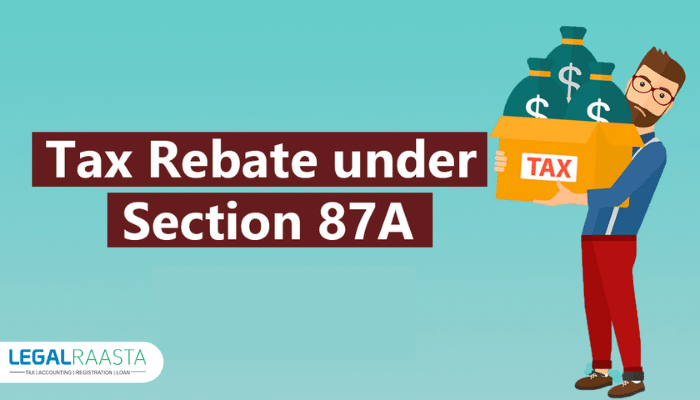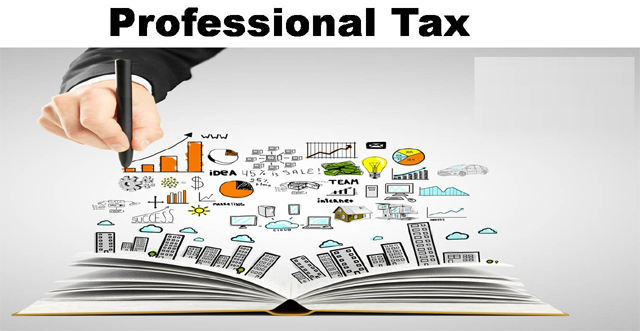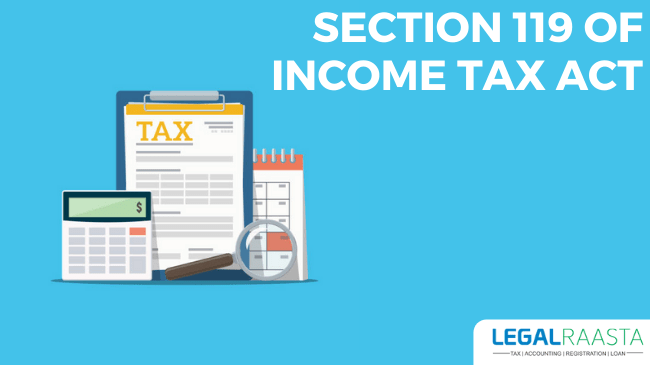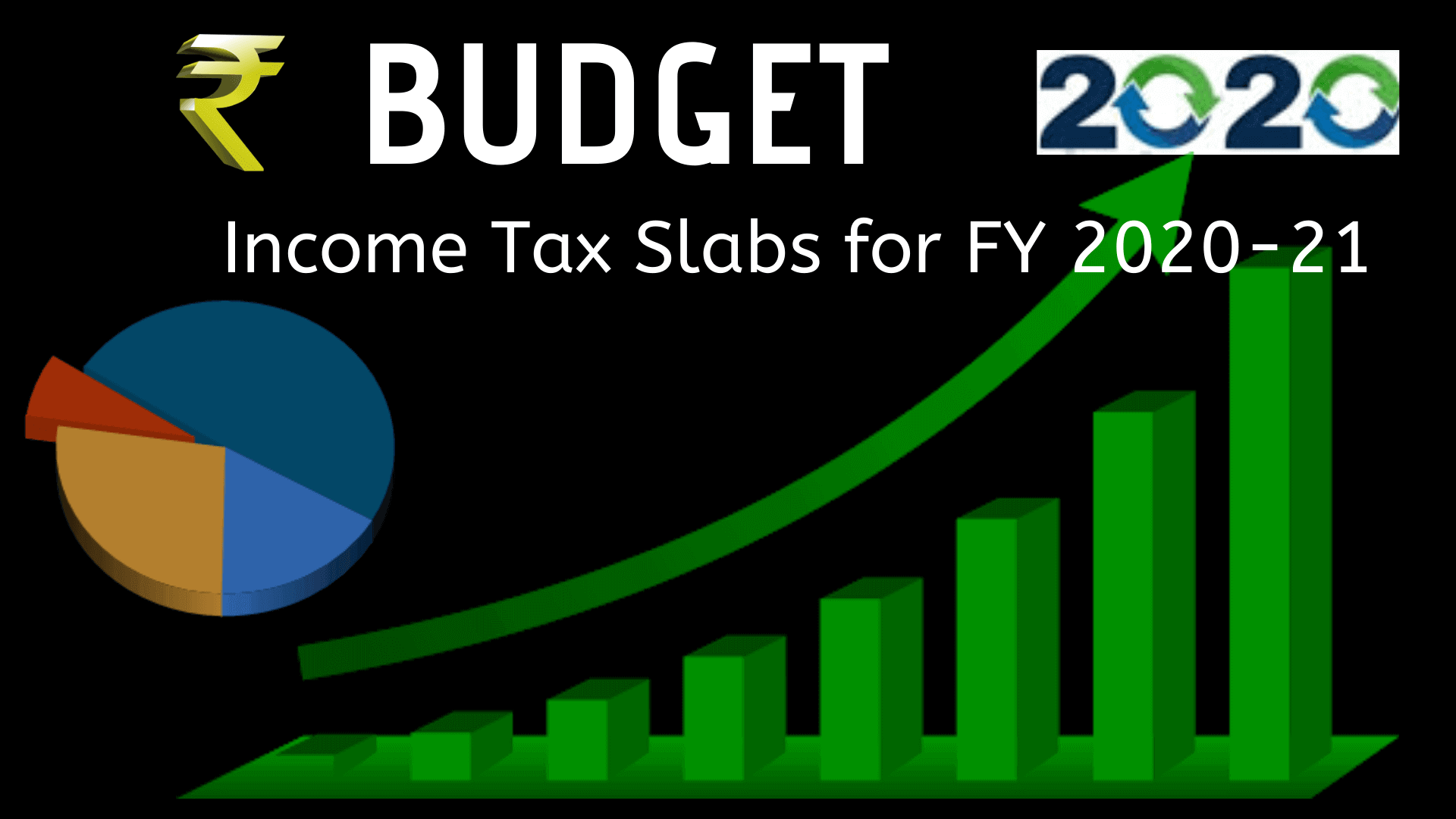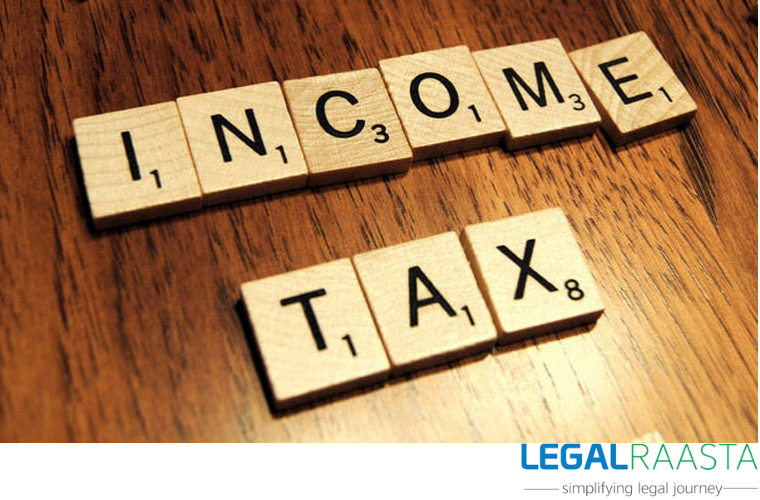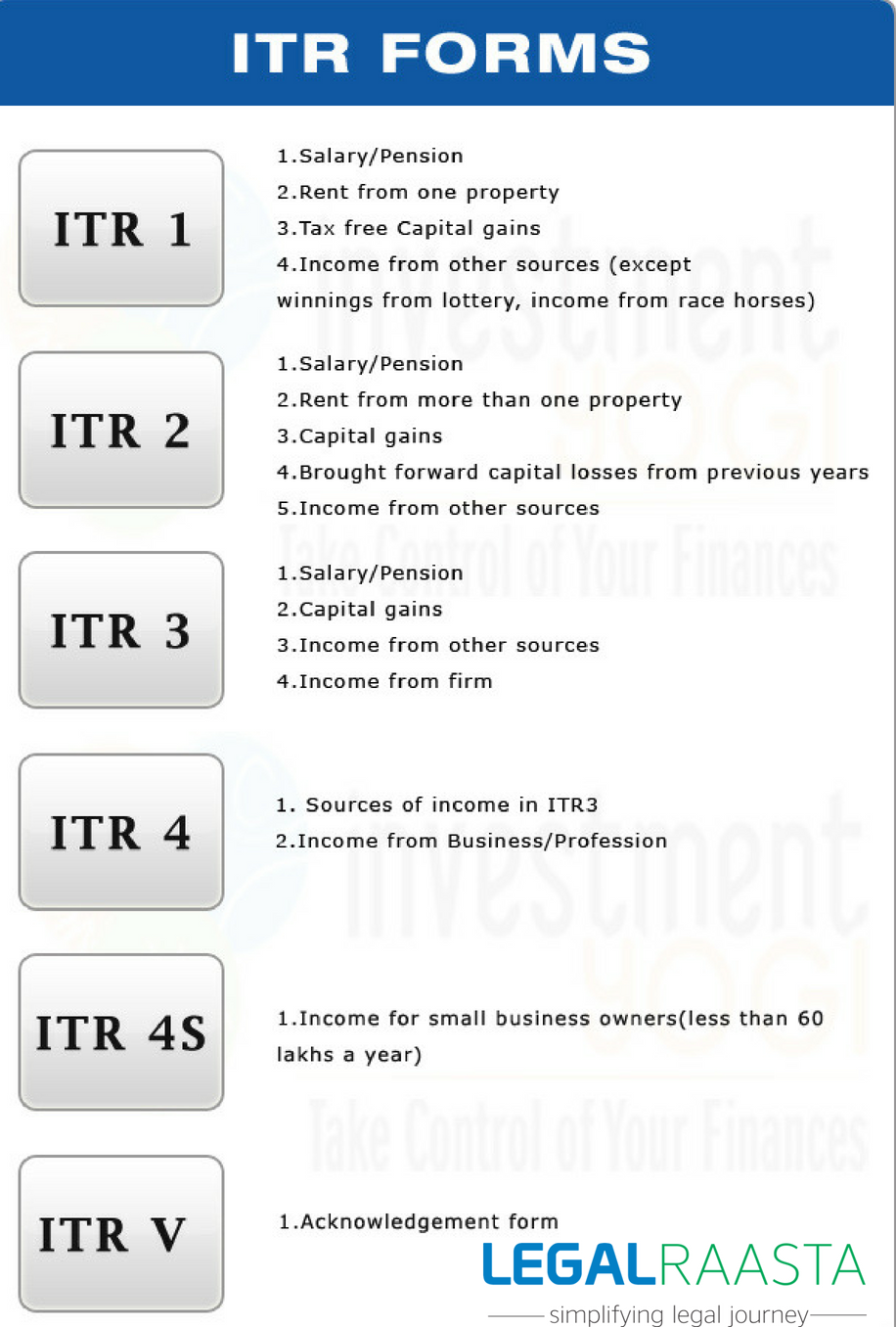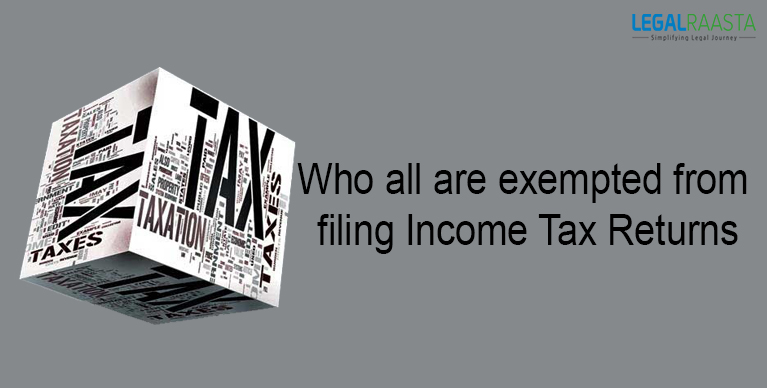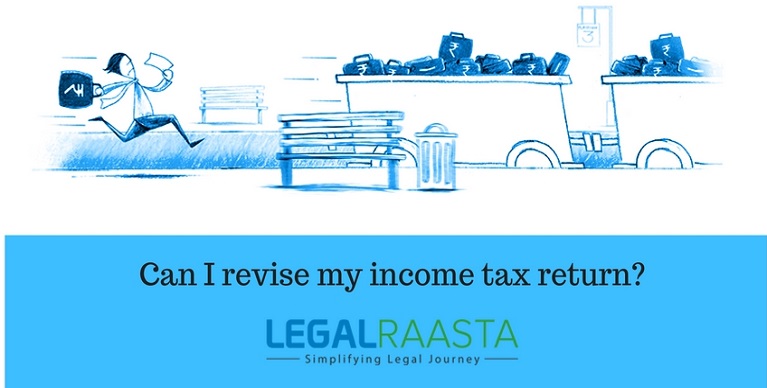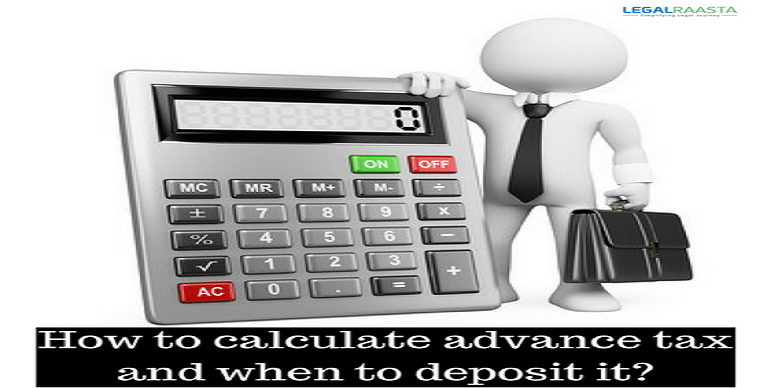Income Tax Rebate Under Section 87A
Introduction
Indian Income Tax Rebate Under Section 87A is one of the Indian income tax provisions that help Indian taxpayers reduce their Indian income tax liability. Indian citizens can claim an Indian Income Tax Rebate under section 87A if their total Indian income does not exceed Rs 5 lakh in a financial year. The Indian Income Tax Rebate under section 87A will make the Indian taxpayer's India-based India Income Tax Liability become nil.
The key to claiming this rebate is ensuring that your total net taxable income, which includes all incomes from any source, does not exceed Rs 5 lakh in a financial year. Furthermore, you must have been resident in India for at least 182 days during the said financial year and have been outside India for no more than 60 days during the previous Indian financial year. Indian citizens who are Indian residents and not Indian citizens or Indian tax-resident but non-Indian citizens or Indian non-tax-resident do not qualify for Indian Income Tax Rebate under section 87A.
The person can claim an Indian Income Tax Rebate under section 87A only if he/she files an Indian Income Tax Return. If the Indian citizen does not file an Indian
Income Tax Return, the Indian Revenue Department will treat him/her as an Indian non-tax-resident even if he/she is an Indian resident, and no Indian Income Tax Rebate under section 87A can be claimed.
Latest Update:
On 9th September 2021, the CBDT announced a new timeline for certain direct tax obligations for AY 2021-22.
- ITR Filing due to date extension:
- ITR filings by taxpayers who are not under audit will be delayed from September 30, 2021, to December 31, 2021 -
- The filing date for IRS tax audit investigations is extended to February 15, 2022.
- Pricing was extended to February 22 in the case of a transfer Tax reporting for transfers is now ended.
- The ITR filing for FY 20-21 is prolonged from December 31, 2021, to March 31, 2022, in order to allow delinquents more time to file their belated or revised returns.
- The deadline to submit the audit report has been extended to January 15, 2022.
- The due date for furnishing the audit report in transfer pricing instances has been extended to January 31, 2022.
Steps to claim a tax rebate under section 87A
Prepare the following items to claim the tax rebate under section 87A.
- You have to file Income Tax Return Indian by Calculate your gross total income for the financial year
- You must not have an income that exceeds Rs 5 lakh in a financial year
- The maximum rebate under section 87A for the AY 2020-21 is Rs 12,500.
- You must have capital gains or losses to be able to claim the tax rebate under section 87A
- Provide details and documents of your income and any eligible deductions applicable
- Provide the number of allowances you claimed as well as their respective rates
- Provide details and documents of any expenditure you last incurred before filing your return
- You must have paid or are liable to pay any income tax on the taxable capital gains referred to in section 115AC
An example of the calculation of a rebate under section 87A in the case of an individual who is below 60 years old in AY 2020-21
| Source of income (FY 2019-20) |
Income (Rs) |
| Gross total income |
6,50,000 |
| Less: Deduction* under section 80C |
1,50,000 |
| Total income |
5,00,000 |
| Income-tax (@ 5% from Rs 2.5 to 5 lakh) |
12,500 |
| Less: Rebate u/s 87A |
12,500 |
| Tax payable |
Nil |
You can get a section 80C tax deduction for tax-saving, a section 80D medical insurance deductible, and 80CCD contribution to NPS deductible, an 80G donation deductible, and other deductions to arrive at your total income.
By following the above-mentioned steps, you can claim a rebate under section 87A.
Things to remember to avail rebate under section 87A
- Section 87A is applicable to Indian citizens only.
- Your total income must not exceed Rs 5 lakh in a financial year.
- The rebate under section 87A reduces your income tax liability to nil.
- Rebate under section 87A is also provided for individuals who gain employment or start a business after April 1, 2016.
- Approved charities and trusts can use the rebate under section 87A to reduce their gross income tax liability.
- The discount may be taken from the entire tax before the 4% health and education cess is added.
- Individuals who live in the same home and pay taxes on their property are eligible for this section's discount.
- Section 87A offers a discount of up to $25 for seniors over 60 years old and under 80 years old.
- Seniors over the age of 80 are not eligible to receive a rebate under Section 87A.
- The rebate will be reduced to the limit specified under section 87A, or the total income tax owing (before cess) before any expenses.
- The old and new tax systems both allow for the payment of a rebate under Section 87A.
Eligibility to claim rebate u/s 87A for FY 2020-21 and FY 2019-20
The following requirements must be met in order to qualify for the benefit of rebate under Section 87A for FY 2020-21 and FY 2019-20:
- You are a resident individual
- In an FY, your whole income after taking away the deductions allowed under Chapter VI-A (Section 80C, 80D, and so on) is less than Rs 5 lakh.
The tax refund is capped at Rs 12,500. This implies that if your total tax obligation is less than Rs 12,500, you will not have to pay any taxes.
Note that, before adding the health and education cesses of 4%, the rebate will be deducted from the total tax. Here are a few examples of resident individuals' section 87A rebates, including senior citizens:
| Total Income (Rs) |
Tax payable before cess (Rs) |
Rebate u/s 87A (Rs) |
Tax Payable + 4% Cess (Rs) |
| 2,70,000 |
1,000 |
1,000 |
0 |
| 3,60,000 |
3,000 |
3,000 |
0 |
| 4,90,000 |
12,000 |
12,000 |
0 |
| 12,00,000 |
1,72,500 |
0 |
1,79,400 |
Eligibility to claim rebate u/s 87A for FY 2018-19 and FY 2017-18
If you're looking to claim a tax rebate under section 87A for FY 2017-18 or FY 2018-19, the following are the requirements:
- You are a resident individual
- Your taxable income after deductions under Chapter VI-A, Part A (Sec. 80C, 80D, and so on) is less than Rs 3.5 lakh.
The amount of tax refund is restricted to Rs. 2,500. As a result, you will not have to pay any taxes if your tax bill does not exceed Rs. 2,500.
Do note that the tax rebate will be applied to the total tax before adding the health and education cess of 4% (FY 2018-19) or education cess of 3% (FY 2017-18).
Here are some examples of section 87A rebates for individual residents in FY 2017-18 and FY 2018-19:
| Total Income (Rs) |
Tax payable before cess (Rs) |
Rebate u/s 87A (Rs) |
Tax Payable + 4% Cess (Rs) |
| 2,65,000 |
750 |
750 |
0 |
| 2,70,000 |
1,000 |
1,000 |
0 |
| 3,00,000 |
2,500 |
2,500 |
0 |
| 3,50,000 |
5,000 |
2,500 |
2,500+cess** |
** The tax payable for FY 2017-18 is Rs. 2500 plus three percent cess and the tax payable for FY 2018-19 is Rs. 2600, i.e., Rs. 2500 plus four percent cess
Rebate limit under section 87A for all the Financial years
| Financial Year |
Limit on Total Taxable Income |
Amount of rebate allowed u/s 87A |
| 2021-22 |
Rs. 5,00,000 |
Rs. 12,500 |
| 2020-21 |
Rs. 5,00,000 |
Rs. 12,500 |
| 2019-20 |
Rs. 5,00,000 |
Rs. 12,500 |
| 2018-19 |
Rs. 3,50,000 |
Rs. 2,500 |
| 2017-18 |
Rs. 3,50,000 |
Rs. 2,500 |
| 2016-17 |
Rs. 5,00,000 |
Rs. 5,000 |
| 2015-16 |
Rs. 5,00,000 |
Rs. 2,000 |
| 2014-15 |
Rs. 5,00,000 |
Rs. 2,000 |
| 2013-14 |
Rs. 5,00,000 |
Rs. 2,000 |
Frequently Asked Questions
Can NRIs claim a rebate under section 87A?
This rebate is only available to resident individuals. As a result, non-residents are not eligible for a rebate under 87A.
Can this rebate be claimed by anyone?
Only individuals are eligible for this incentive. This financial benefit is only available to organizations, HUFs, or corporations.
How to claim rebate u/s 87A?
According to the Indian tax code, only natural individuals are eligible for a tax rebate under U/s 87A, which means HUFs and companies are not eligible. This refund may be claimed while filling an ITR return. For the 2019-20 financial year, if your self-assessment tax payment is less than Rs 5 lakh and you claim deductions.
How to calculate rebate u/s 87a?
If the individual's total income is less than Rs 5 Lakhs after taking deductions, they are entitled to a tax rebate under Section 87A. As a result, taxable income after deductions must be verified to determine whether the rebate is applicable.
- Reduce your section 80C to 80U deductions and calculate your gross total income. If your earnings are less than Rs 5 lakh, you may be eligible for a tax rebate under section 87A, which equals 100% of the taxes paid up to Rs 12500.
- If taxable income is more than Rs 5 lakh, no relief can be obtained.
Read, also: Form 12B: A Complete Guide
TRAN 1 & TRAN 2 Format, Due Date

